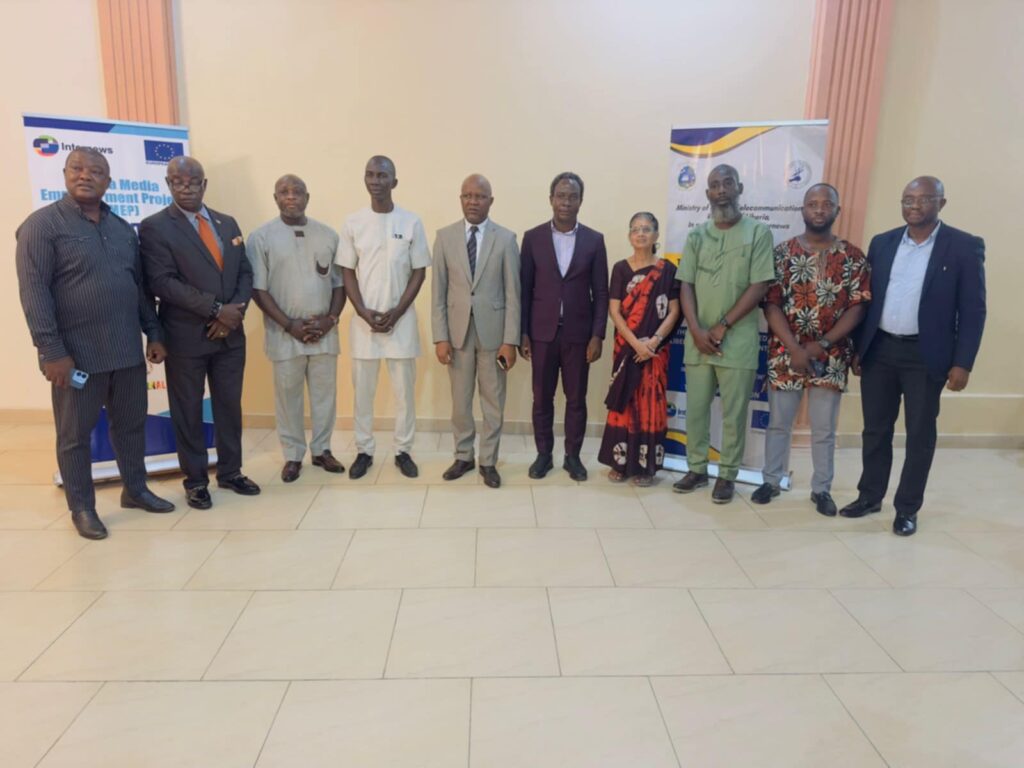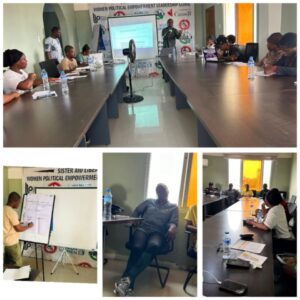STAKEHOLDERS ENDORSE DRAFT LEGISLATION FOR PERSONAL DATA PRIVACY AND PROTECTION

By: Laymah Kollie
Monrovia, Liberia: Developed by the Ministry of Posts and Telecommunications (MoPT), with support from Internews under the European Union-funded Liberia Media Empowerment Project (LMEP), the proposed law, a standalone comprehensive instrument, is designed to provide structured guidance for the collection, processing, transmission, storage, protection, and use of personal information in Liberia.
Currently, Liberia does not have a standalone law on personal data protection. Once enacted, the legislation will supersede all other laws, decrees, executive orders, proclamations, and administrative regulations related to personal data. It aims to protect individuals’ data without compromising the general interest of the state.
It will also impose penalties for unauthorized access, processing, and use of personal data, including the concealment of breaches and other malicious disclosures of personal information held by individuals and institutions responsible for managing such data.
The validation process held in Monrovia on Tuesday gathered over 50 stakeholders, including representatives of key government functionalities in the data value chain, education sector, CSOs, legal experts, the media and Diplomatic corps.
Addressing the opening session, Minister of Posts and Telecommunications, Sekou M. Kromah, emphasized the importance of personal data protection in the contemporary era. “As we move towards a more digitized society, we must establish a robust legal framework to protect the privacy of our citizens,” the Minister stated. “This legislation is not just about compliance; it is about fostering trust among users and ensuring that their rights are protected,” he said.
Also present was the European Union Ambassador to Liberia, Nona Deprez, who emphasized the critical role of strong data protection in modern governance and democracy. “The EU has the strongest data protection rules in the world because we recognize that protection of personal data is a fundamental right, she said.
The EU envoy outlined the risks posed by the absence of a data protection framework, including erosion of trust in institutions, discrimination, disinformation, and legal uncertainty. She also noted that lack of regulation can impede innovation and international trade while exposing the youth to exploitation, particularly through social media misuse. “Freedom of the press is a must in any democracy, but there must be a balance between journalistic practices and personal data protection, especially concerning children and vulnerable populations,” the EU Ambassador cautioned.
The Director of the Liberia Media Empowerment Project, Samuka V. Konneh shares similar believe with the EU Ambassador “it is not only a human rights instrument but a democratic instrument,” he said. “We from from the non for profit end (Internews) are very committed to supporting the MoPT so that this law is passed,” he disclose.
Throughout the review, key figures in the data value chain actively participated in the session, offering insights and recommendations to refine the draft. They underscored the necessity for clarity in defining personal data and the rights of data subjects.
The participants highlighted the necessity for public enlightenment on the topic, as well as the measures the Ministry of Post and Telecommunications, in collaboration with its partners, is undertaking to protect citizens’ personal data. Dr. Srivaramangai, the headmaster of the BlueCrest University College, highlighted the gap in awareness, stating, “not many people are aware of this initiative, nor do they know that the violation of personal privacy is a rights issue.” This sentiment resonated with others, who emphasized the critical importance of informing citizens about their data rights and protective mechanisms.
Last week, a similar forum was held in Ganta, Nimba County, where over forty stakeholders from ten of Liberia’s fifteen counties gathered. Participants represented county council authorities, county health teams, civil society organizations, county education teams, and youth communities, among others.
Officials of the MoPT and Internews committed to incorporating inputs gathered from stakeholders during both validation fora, before forwarding the draft legislation to the Law Reform Commission for final review and onward submission to the Legislature for passage into law. Following this commitment, the participants vehemently endorsed the legislation for advancement.
MoPT’s head of Project Management, D. Nalon Kaine, expressed gratitude for the high level of engagement during the validation process. “We have been struggling with this issue for quite some time, but your involvement has brought relief and speed to the process,” he said, expressing gratitude to the EU through Internews for its continued support.



